Electrical current is an important consideration when selecting an electrical connector. All connectors can be classified according to their current type: AC (alternating current) and DC (direct current). binder offers M12 AC (Series 824 and 814) and DC connectors (Series 823 and 813), which differ in many aspects, such as technical specifications, and usability. The most significant difference in the current type is that AC connectors carry alternating current, where the direction of flow of electric charge periodically reverses, while DC connectors are designed to carry direct current with a continuous flow in one direction. Depending on whether the application is running on an AC or DC motor or power supply, the connector must be chosen accordingly.
AC connectors are designed to handle higher voltages and currents typically found in many industrial applications. binder's AC connectors have a rated voltage of up to 630V and a rated current of 12A to 16A. For specific information, please check the data sheet or contact our customer service. In contrast, DC connectors vary depending on the application, from low-voltage DC connectors used in electronics to high-voltage connectors used in power distribution systems. binder's DC connectors come in rated voltage of up to 63V and rated current of 12A to 16A.

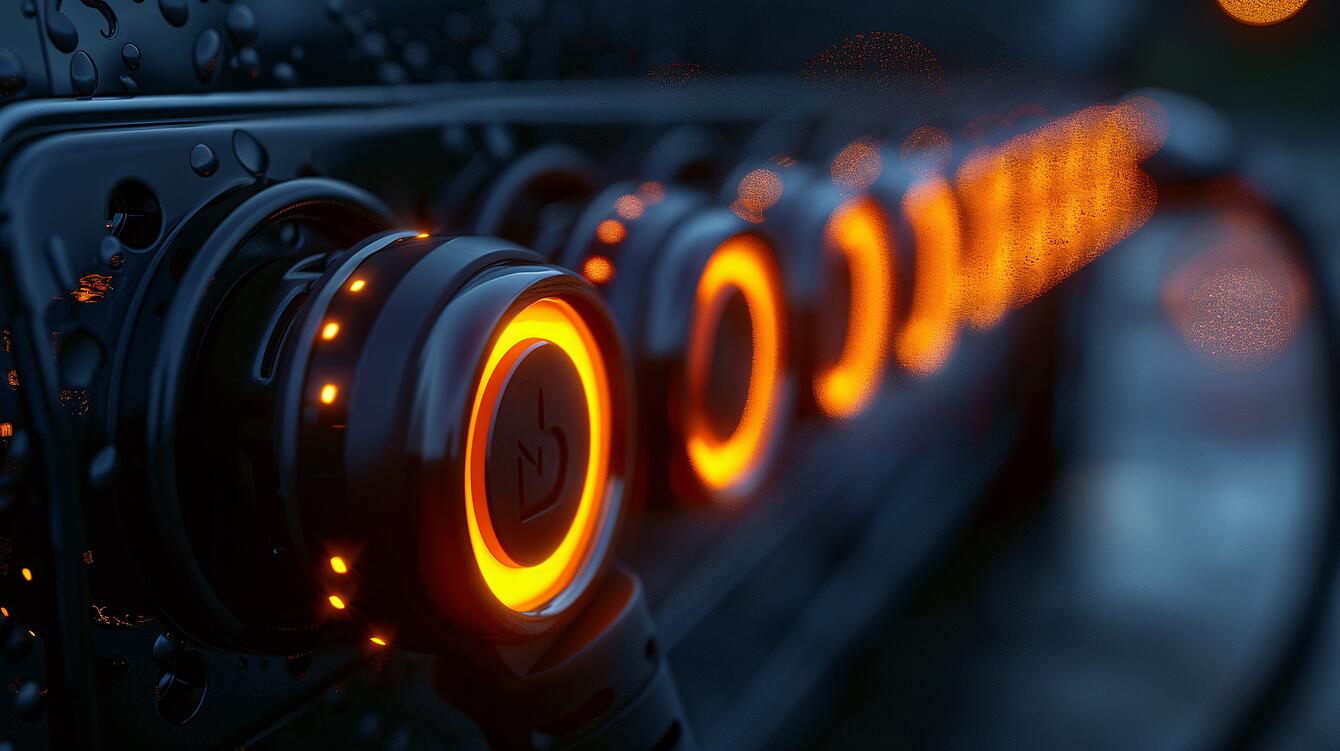
Another difference is found in polarity since both variants require specific polarity requirements. DC electrical connectors need certain requirements to ensure proper functioning and prevent damage to the equipment. Reversing the polarity in a DC circuit can lead to malfunction or damage. AC connectors usually do not have any polarity concerns since the current alternates direction periodically. Therefore, the orientation of the plug does not affect the device's operation.
binder's AC and DC connector options
binder offers a versatile portfolio with various series suitable for AC and DC power. DC plugs and DC sockets are predominantly used in the automation sector for voltage and power supply. DC connectors entail the majority of our product portfolio. AC power connectors such as the M12 K-code and M12 S-code are used to supply AC motors and motor switches with high voltages over longer periods of time. Whereas the M12 L-code and M12 T-code DC power connectors are used for low-voltage applications such as fieldbus Ethernet components and network devices. Here are some product highlights for AC and DC power connector options of our M12 voltage & power supply series:
M12 K-coded
Connectors of the 824 series with screw locking, according to DIN EN 61076-2-111, are K-coded for AC applications. They have 4+PE contacts with a rated current of 12A to 16A (overmolded with AWG 14) at 630VAC. These connectors are available in overmolded and field terminated cable versions, both straight and right-angled. Panel mount connectors are available with stranded wires.
Get in touch Learn more
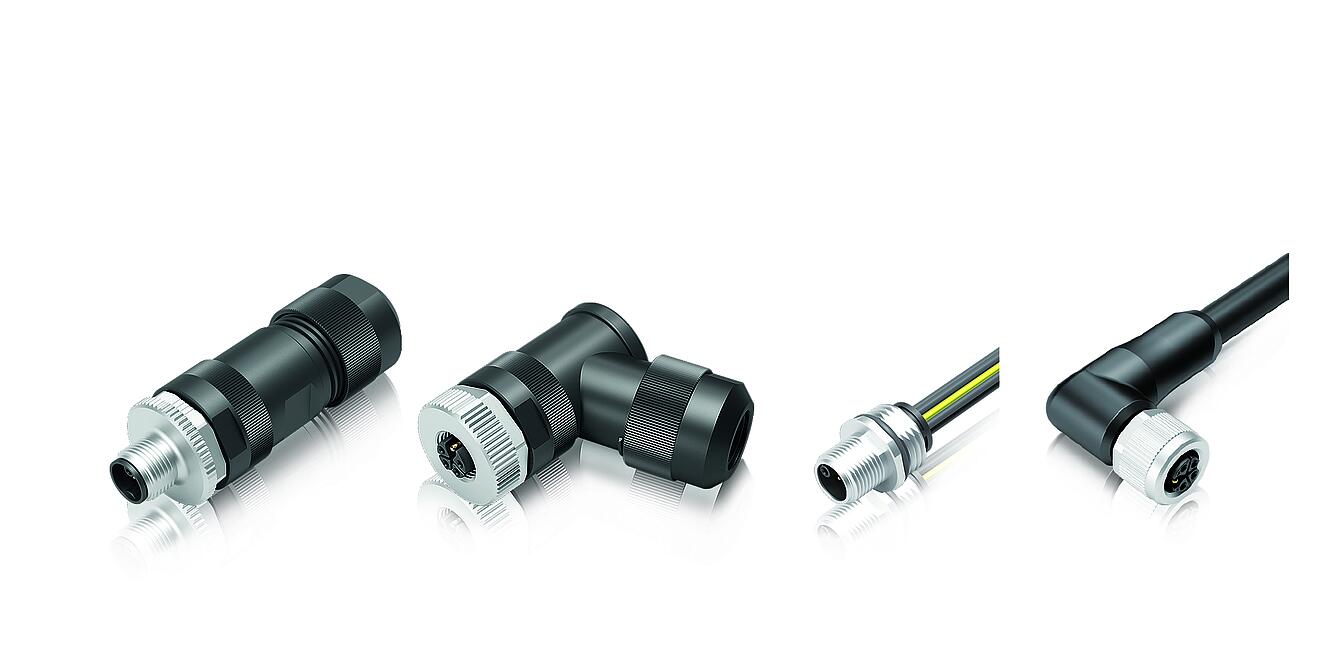

M12 S-coded
Connectors of the 814 series with screw locking, according to DIN EN 61076-2-111, are S-coded for AC applications. They have 2+PE and 3+PE contacts with a rated current of 12A (3+PE) to 16A (2+PE) at 630VAC. These connectors are available in straight and angled cable versions with screw terminal connections and overmolded cable. The panel mount versions are available with screw terminals as well as with stranded wires.
Get in touch Learn more
M12 L-coded
The 823 series with screw locking, according to DIN EN 61076-2-111, are L-coded for DC applications. L-coded versions have 4+FE contacts with a rated current of 12A/ 16A at 63VDC. The straight and angled cable connectors have a screw terminal connection and are also available with overmolded cable. Panel mount connectors are available with dip solder terminals as well as with stranded wires.
Get in touch Learn more
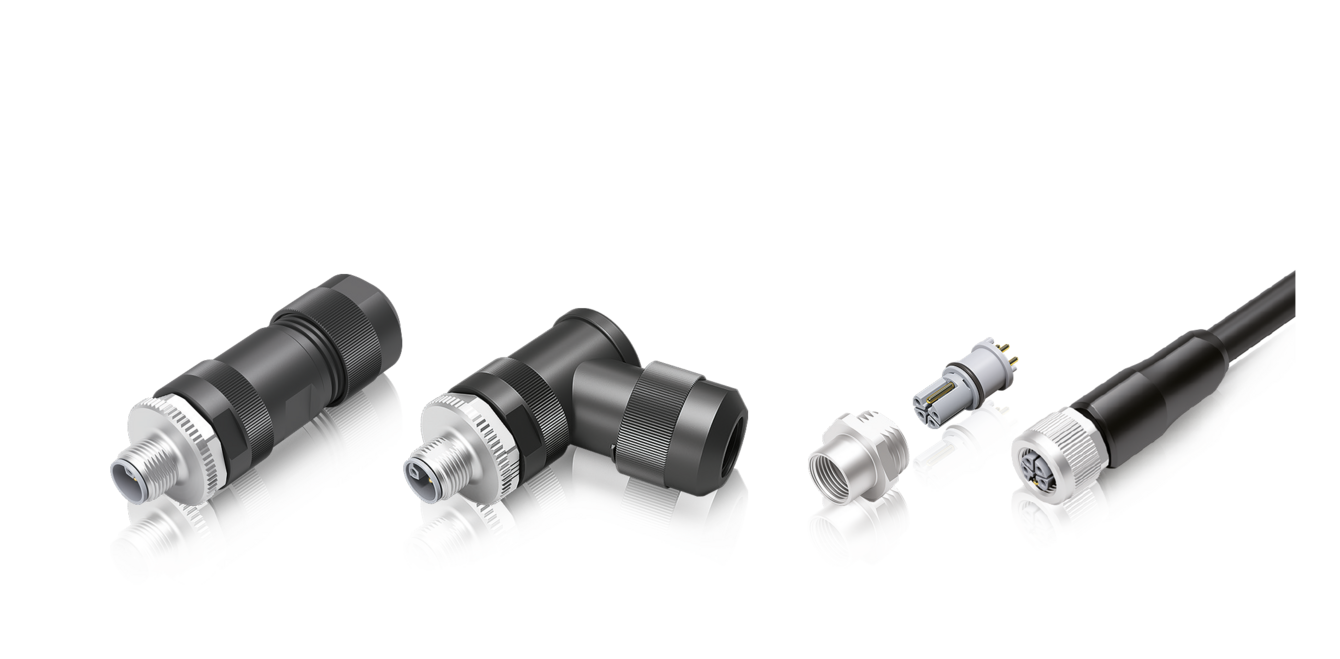
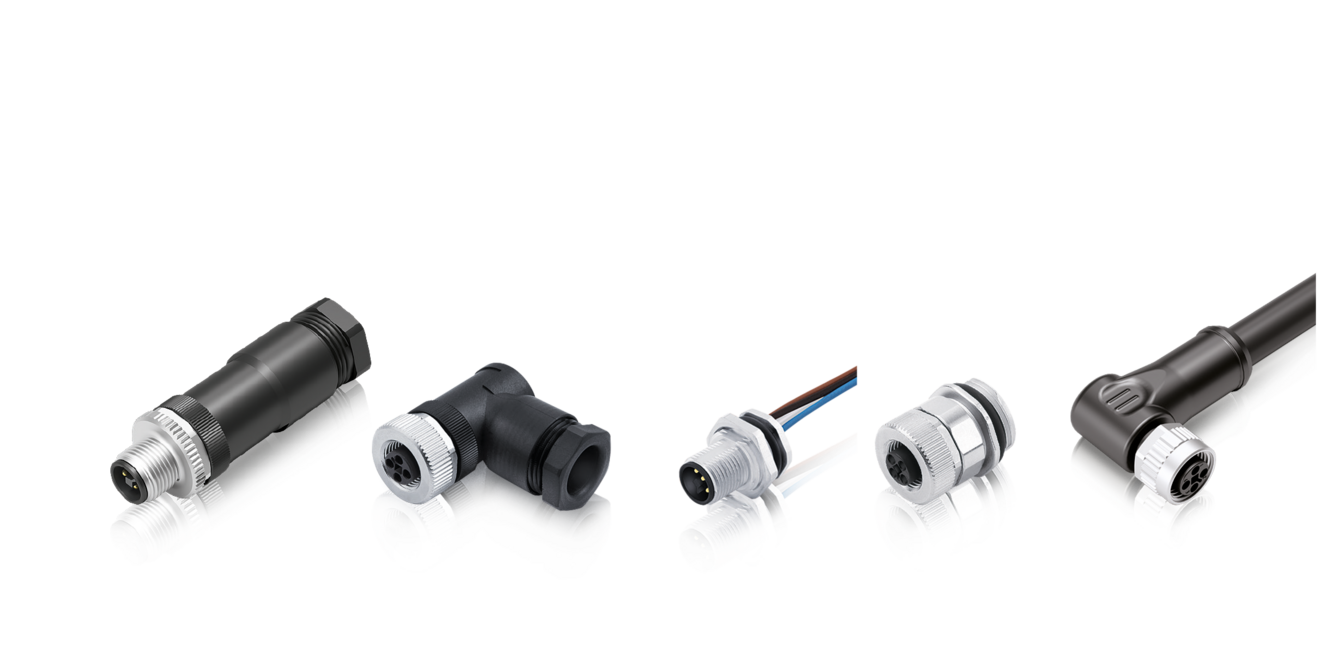
M12 T-Coded
Connectors of the 813 series with screw locking according to DIN EN 61076-2-111 are T-coded for DC applications. T-coded versions have four contacts with a rated current of 12A at 63VDC. The straight and angled cable connectors have screw terminals but are also available with overmolded cable. Panel mount connectors have dip solder terminals and stranded wires.
Get in touch Learn more
Benefits of AC and DC connectors
Both AC connectors and DC connector types have strengths and unique characteristics. Whether an operator should decide on either AC or DC electrical connectors depends on several factors, including the specific application, voltage requirements, safety considerations, and environmental factors.
The advantages of AC connectors include the following aspects
- Efficient transmission for long distances over power lines.
- Great infrastructure and high adaptation worldwide make AC connectors readily available and compatible with existing infrastructure.
- Safety features such as grounding pins and polarized plugs to reduce the risk of electric shock and ensure proper electrical connections.
- Our product portfolio is highly versatile in terms of pin configurations and technical specs, which ensures a seamless design for applications in industrial and other settings.
- The ease of voltage conversion helps adapt to different voltage levels, which might suit different applications without the need for circuitry.

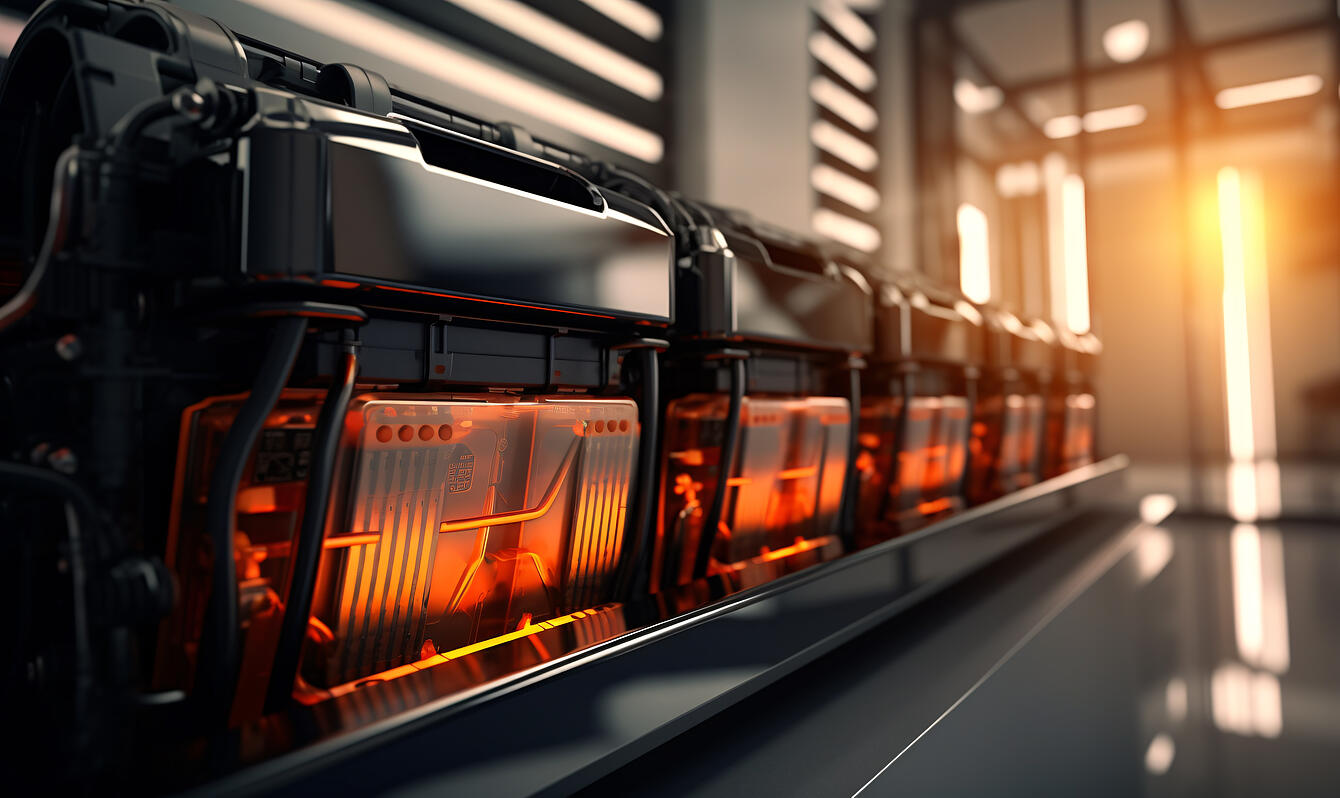
The advantages of DC connectors include the following aspects
- Higher efficiency in low-voltage and low-power device applications helps minimize losses.
- Precise control of voltage and current levels enables a stable power supply and control systems.
- Many DC connectors are resistant to harsh environments and weatherproofing, which makes them a preferred option for outdoor applications (Please check individual products for IP rating)
- Reduced electromagnetic interference, which is beneficial for sensitive applications.
AC connectors are commonly used in applications where continuous, reliable operation and high-power supply are required, such as industrial settings or electrical distribution systems. Specific examples include motor-operated switches, applications that run on AC motors, and AC power supply units.
DC connectors are used in applications that require variable speed control or high starting torque, such as electric vehicles or machine tools. DC power connector types are commonly used in electronics, such as batteries, solar panels, electronic devices, or automotive applications. Specific examples include applications that run DC motors and drives, I/O modules, DC power supply for PROFINET devices, or industrial lighting.




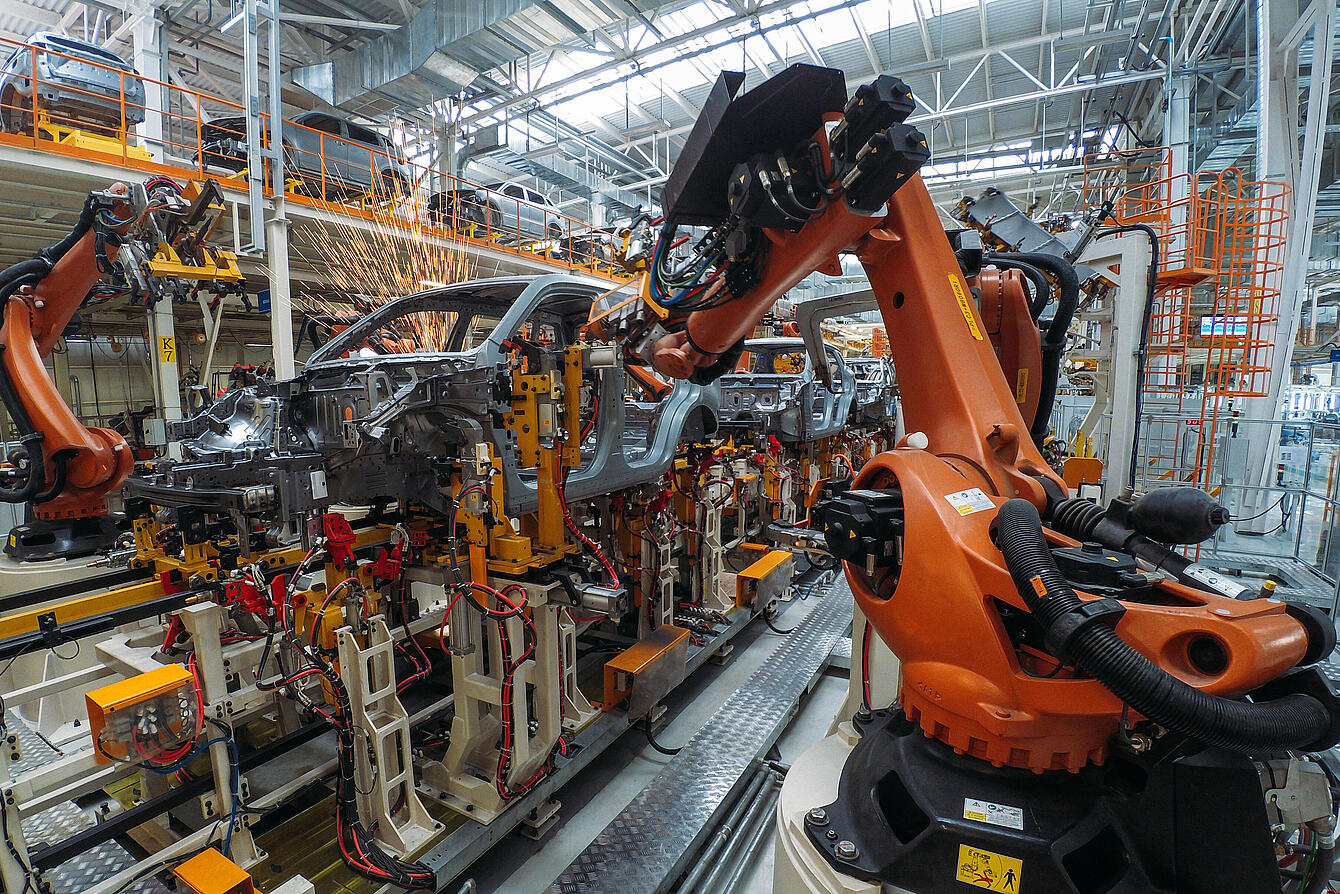



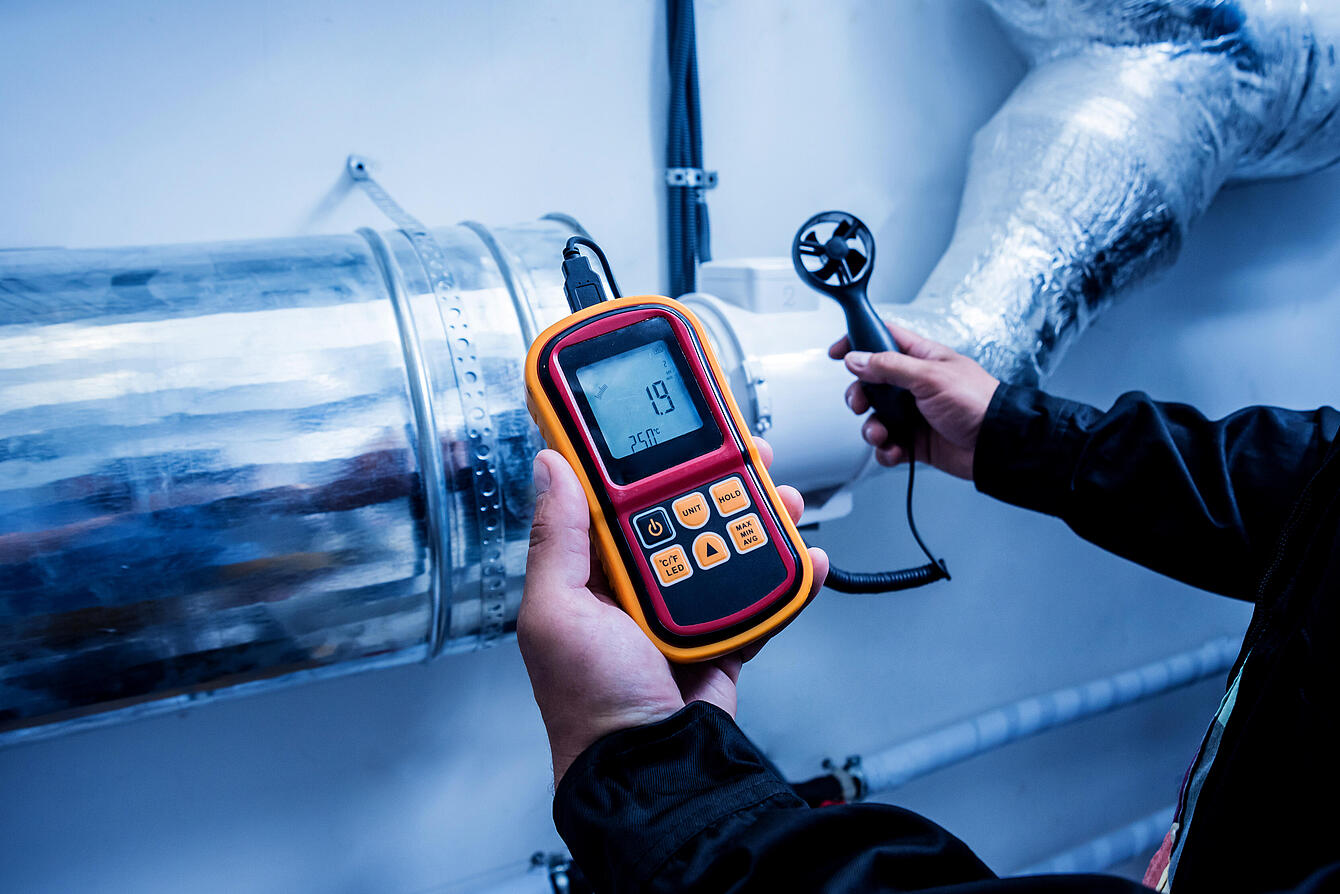
Which industries do the AC and DC connectors benefit?
Both AC and DC connectors can be applied in various industries and there are no limitations of designing in a connector as long as it meets the requirements of the applications and industry standards. Here are a few industries to point out:
AC connectors:
- Automation
- Communication
- Heavy machinery
- Robotics
DC connectors (mostly applied in all industries listed on our website; Here are a few industries to highlight):
- Automation
- Food & beverage
- Energy and renewable energy
- Lighting
- Test and Measurement



